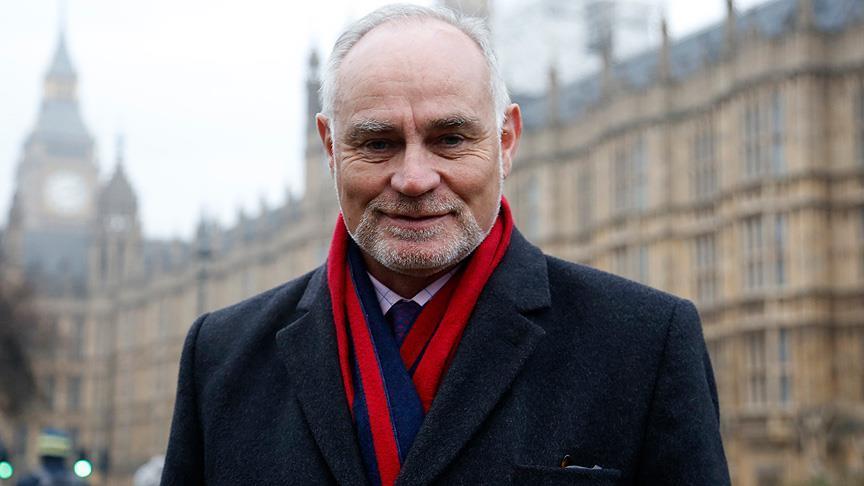 Crispin Blunt, former chair of British parliament’s Foreign Affairs Committee and Conservative MP
Crispin Blunt, former chair of British parliament’s Foreign Affairs Committee and Conservative MP
LONDON
Egypt’s ousted President Mohamed Morsi “is not an ordinary prisoner” and “if something happens to him in custody, there are likely to be wider consequences than simply just the fate of one prisoner,” Crispin Blunt, former chair of British parliament’s Foreign Affairs Committee and Conservative MP, said.
Blunt told Anadolu Agency that a British attempt last week to visit the country's first democratically elected president, Mohamed Morsi had received no answer from the Egyptian Embassy in London.
Blunt said “a form of solicitors, instructed by the family of President Morsi wanted to establish a reputable detention review panel that could examine the conditions in which […] Morsi is being incarcerated.”
The joint British delegation had been formed by former Under-Secretary of Justice Lord Edward Faulks, Health Committee member Paul William and Blunt.
“There are these prima facie concerns about how he is being held in the conditions which he is in and his health,” Blunt said.
“He is not an ordinary prisoner while he should be held to ordinary prisoner standards and [to] the rules of the Egyptian prison system and decent international standards. He is an ex-head of state, he was elected by the people of Egypt and that means if something happens to him in custody, there are likely to be wider consequences than simply just the fate of one prisoner. “
“There have been some noises in the Egyptian parliament, none of which have been terribly constructive but the point I would make to Egyptian officials is that this is an opportunity either to rebut the criticisms that are being made,” he added.
Crispin Blunt said that should Egyptian authorities reject their visit, “then we will review all the evidence that is available to us outside of Egypt […] and we will […] produce a report on the basis of what is known.”
Also underlining the human rights breaches in Egypt, Blunt pointed out the difficult situation in Egypt.
“Well the human rights situation in Egypt is undoubtedly extremely difficult and the police impunity appears to have returned and it was one of the issues amongst the long suffering Egyptian population that led to the fall of President [Hosni] Mubarak and the security services in Egypt I think undoubtedly need to be held to account,” he said.
“There have been opportunities for President [Abdel Fatah al-]Sisi to address this and so far they’ve not been taken,” he added.
Mohammed Morsi is isolated in a solitary confinement despite the fact that he has expressed concerns about his health. He could not attend most of the hearings in his trial launched shortly after he was ousted in a bloody coup in 2013.
“My health situation has become serious and deteriorates day after day,” Morsi has said previously. Morsi said he would not stand down from requesting medical treatment, stating that he had already slipped into a diabetic coma twice because he could not eat the prison food.
Responding to the former president’s demands, the judge stressed that the medical examination request had to be signed off by the prison doctors, a decision which has not been taken so far.
Egyptian authorities say Morsi is receiving necessary medical treatment in prison.
Reporting by Tayfun Salci:Writing by Ahmet Gurhan Kartal
Anadolu Agency website contains only a portion of the news stories offered to subscribers in the AA News Broadcasting System (HAS), and in summarized form. Please contact us for subscription options.







